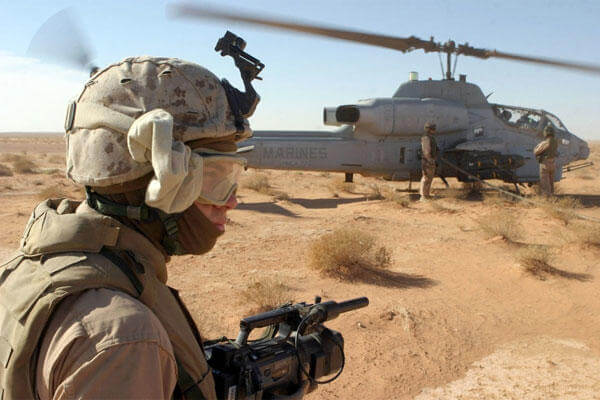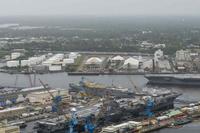U.S. troops have returned to Iraq's embattled Anbar province for the first time since fighters of the Islamic State of Iraq and Syria (ISIS) swept in last summer and took control of large swaths of the area west of Baghdad, the Pentagon said Monday.
About 50 U.S. troops were at the al-Asad air base 100 miles west of Baghdad near the southern bank of the Euphrates River, Pentagon and U.S. Central Command officials said.
The troops are conducting a site survey of al-Asad as a future training base for anti-ISIS forces and were not engaged in advising Iraqi national security forces who were holding off ISIS attacks, the officials said.
Anbar was the scene of horrific and prolonged fighting, mostly by U.S. Marines, for the flashpoint cities of Fallujah and Ramadi before the withdrawal of U.S. combat forces in 2011. Fallujah has since fallen to ISIS while Iraqi forces still control about half of Ramadi.
Col. Patrick Ryder, a CentCom spokesman, confirmed the presence of the U.S. troops to Reuters.
"A portion of the group consists of force protection personnel and any weapons U.S. forces possess are for force protection requirements," Ryder told Reuters.
On Monday, President Obama sent House Speaker John Boehner, R-Ohio, a formal request for the approval of $5.6 billion in funding to send an additional 1,500 troops to Iraq to train, advise and equip Iraqi and Kurdish forces and bolster the air campaign in Iraq and Syria under Operation Inherent Resolve.
The additional 1,500 troops would roughly double the U.S. troop presence in Iraq to about 3,100. In asking for more troops, Obama repeated his pledge to keep them out of combat and limit their role to training and advising.
The Central Command has coordinated frequent airstrikes in recent weeks around al-Asad and the nearby Haditha dam to keep ISIS fighters from overrunning them.
Until Monday, U.S. troops involved in the train and advise mission had essentially been limited to working out of Joint Operations Centers in Baghdad and in northern Irbil, the capital of the Kurdish region.
-- Richard Sisk can be reached at Richard.Sisk@monster.com.

























